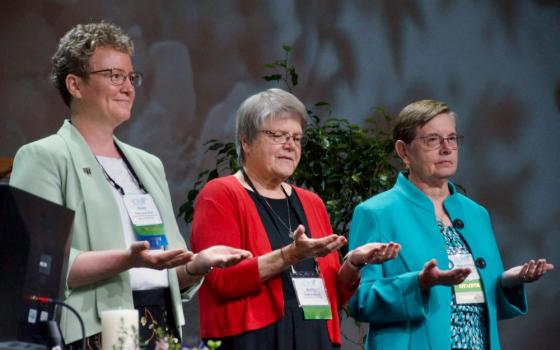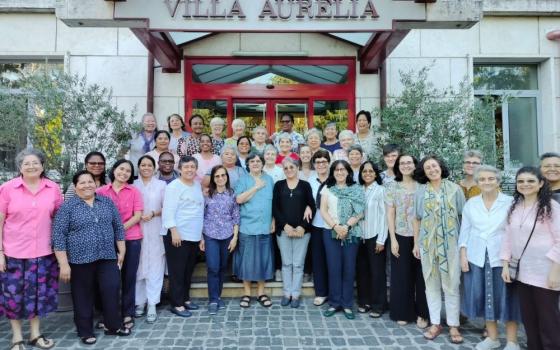Dominican Sr. Judy Byron (CNS/Courtesy of the Interfaith Center on Corporate Responsibility)
Dominican Sr. Judy Byron (CNS/Courtesy of the Interfaith Center on Corporate Responsibility)
Support among investors for the Smith & Wesson firearms maker to adopt a human rights policy keeps growing.
At the Smith & Wesson shareholders meeting in September, the proposal received 42% support of all shares held in the firm, up from 36% the last time it was brought up for a vote in 2019.
"It's a great vote for a human rights proposal at a firearms manufacturer. And I think it's indicative to shareholders, too, that something must be done about the gun violence," said Dominican Sr. Judy Byron, the Seattle-based consultant for the Adrian Dominican Sisters' portfolio advisory board.
Byron also is director of the Northwest Coalition for Responsible Investment, a collection of 14 members who are religious communities and Catholic health care systems, all of which are members of the Interfaith Center for Corporate Responsibility.
"When we started this work in 2016, we did that as shareholders, because we did realize that gun violence was so serious. All the players were there — the government, the people, there were all sorts of advocacy organizations — but the only group that was not involved were the gun manufacturers and also the retailers," Byron told Catholic News Service in an Oct. 1 phone interview.
"There'd be a press release from everyone, even the NRA [National Rifle Association], but you never heard from the manufacturers."
After a request from some investors, Smith & Wesson produced a report on what it was doing on the issue in 2018. "It was quite disappointing," Byron said. "Basically, they took no responsibility."
ICCR, on behalf of the Northwest Coalition, advanced a shareholder resolution in 2019 for Smith & Wesson to produce a gun violence statement that included a due-diligence policy. The resolution garnered 36% support.
"We filed it again last year, and they had published a corporate stewardship policy, so we withdrew our resolution in favor of dialogue," Byron said. But the talks went nowhere. "We refiled this year, and yes, we're very happy."
Advertisement
At the stockholders' meeting Sept. 27, Byron said, "Our advocacy on gun safety has been characterized by S&W management as a ruse whose real intention is to put the company out of business and to abolish the Second Amendment. We have always said this is not our agenda."
She added, "We genuinely believe Smith & Wesson has the knowledge and the expertise to engineer the solutions we need to reduce gun violence and save lives. ... A human rights policy would help Smith and Wesson demonstrate that it is neither tone-deaf or callous to the cries for change and for the solutions to gun violence we so desperately need."
"In this day and age, it doesn't make sense to realize how backward firearms are," Byron told CNS. "If you think how everything is engineered by technology: I'm talking to you on my cellphone, and nobody can use my cellphone but me. If I had a gun on my table, anybody could use that gun."
Three days after the shareholders' meeting, Smith & Wesson announced it is leaving its headquarters in Springfield, Massachusetts, its home since the company's founding in 1852, and relocating to Maryville, Tennessee, near Knoxville. The first two reasons for the move that the company listed in the announcement were "support for the Second Amendment" and "business friendly environment."
The Massachusetts Legislature is considering a bill that would ban the manufacture of certain firearms that Smith & Wesson president Mark Smith said in the announcement accounts for 60% of the company's revenue.
About 750 manufacturing jobs and headquarters staff will move from Massachusetts to Tennessee. Smith & Wesson also is closing factories in Connecticut and Missouri to consolidate more of its gun-making capacity in Tennessee.



